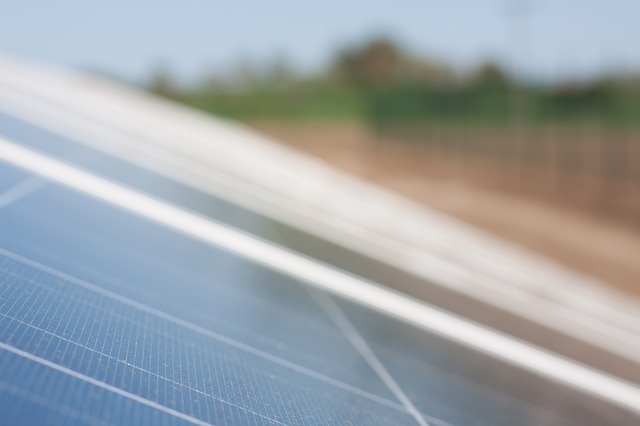Convert lead acid battery to lithium Replacement and Charging
Mar 10, 2020 Pageview:12717
Can you replace the lead acid battery with lithium?
Yes, you can replace your lead acid battery with a Lithium ion one. However, there are some things you need to know first before making the transition.
You will not need an external charger to charge your Lithium ion battery. The alternator will charge the new Lithium ion battery the same as it charges the lead acid batteries. Moreover, trickle charging is not required. Unlike lead acid batteries, Lithium ion batteries do not lose charge by sitting unused.
Lithium ion batteries are waterproof. It is safe to wash the inside of the car with the battery inside.
Before buying the new Lithium ion battery, figure out the Ah size pack you need. This is an important step.
Lithium ion batteries have the Battery Management System (BMS), which means that you will not encounter the dead battery situation ever.
Lithium ion batteries have a protection circuit that prevents them from over draining.
Lithium ion batteries can be mounted in any position, it does not matter if they are upside down. There is no acid inside that would be spilled.
Lithium ion batteries last from five to ten years. That is at least double the cycle life of the lead acid batteries.
Do lithium batteries charge faster than lead acid?
Charging Lithium ion batteries in comparison to the lead acid batteries is a subject that concerns many. Lithium ion batteries, specifically the new "much safer" LiFePO4 batteries, can be charged in as little as one hour. That is true; you can charge the lithium ion battery in only one hour. However, it is recommended that you charge the batteries in a two-hour period. If you are wondering, how this could be possible? The answer lies in the term "efficiency". The efficiency of the Lithium ion batteries is so high when compared to the lead acid batteries. Lithium ion batteries are 95% efficient. While lead acid batteries are only 80 - 85% efficient. This efficiency means that Lithium ion batteries can handle much higher amperage coming from the charger, which in return cuts down charging time tremendously. On the other hand, lead acid batteries can handle a limited charge current coming from the charger, anything above that amount and they would overheat. That is why in terms of charging time, Lithium ion batteries have the upper hand.
Moreover, when charging Lithium ion batteries, you do not need to buy another charger. The same charger used to charge the lead acid batteries could be used to charger Lithium ion batteries as well. Most chargers available now contain a lithium charge profile. However, on some occasions, some chargers do not contain that profile, which makes charging Lithium ion batteries with extremely dangerous. These second types of chargers are called "flooded charger profile chargers". Besides, the depth of charge, which is the percentage of the battery that can be drained safely from the battery without causing any damage, in Lithium ion battery is greater than that of the lead acid battery. Lithium ion batteries use 85% or more from its total capacity in a single cycle. While lead acid batteries can only use 50% of its capacity in a single cycle.
It is recommended to have a charge rate of between 0.5C and 1C with a charging time of between two to three hours. That being said, any charger that can give you the previous output is fine. However, you need to check out the numbers because any change, no matter how slight it is, can cause catastrophic results. Lithium ion batteries can explode if charged with a non-compatible voltage. In Lithium ion batteries, a full charge occurs when the charge inside of the battery reaches the voltage threshold while the current drops to 3% of the rated current. When using a charger with increased charge (fast charger) the battery reaches the peak of its voltage faster, however, the saturation charge will take longer with higher current chargers.
Finally, as we have mentioned before, lead acid batteries are limited by how much charge current they can handle, due to overheating problems if charged quickly. Also, the charge rate in lead acid batteries gets extremely slow as you approach full capacity. Lithium ion batteries, on the other hand, can handle much more charge current than lead acid batteries, which makes them suitable to be fast charged.
How do you convert lead acid battery to lithium?
Since the huge advantages Lithium ion batteries have over lead acid batteries, more people by the hour are changing their lead acid batteries to Lithium ion batteries.
Some of the advantages of Lithium ion batteries:
The presence of the BMS system, maintenance is much less than that required for the lead acid batteries.
They can be charged in a normal indoor environment.
They are more environmentally safer and cleaner.
Lithium ion battery reduces energy consumption by 20% to 30%.
They increase the operational range while reducing the battery size.
Improve the operation up time by avoiding the operation called battery shift.
Increase the life cycle tremendously.
Lithium ion battery has no memory effect.
They are very light weight, portable and small.
All of the above advantages make the Lithium ion batteries the obvious choice and make more people switch from lead acid batteries to Lithium ion batteries.
To convert from lead acid batteries to Lithium ion batteries, there some configuration you should do to ensure a safe transformation:
BPU to be connected to the BMS configuration via an RS232 connection.
BPU configuration via the PC toolbox PRO is done by Lithium Balance application Engineers.
Connect the display and the SOC indicator to the BPU
Finally, connect the system to the Bat Analytics data logger and online battery data bank server.
Leave Message
Hottest Categories
-
Hottest Industry News
-
Latest Industry News














